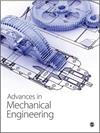案例研究:利用超临界二氧化碳的实验试验台对ORC系统进行重新供电,建议和现场经验改进
IF 2
4区 工程技术
Q3 ENGINEERING, MECHANICAL
引用次数: 0
摘要
虽然有机朗肯循环(ORCs)已经垄断了小规模的能源收集市场,但sCO 2循环产生的发电能力远远超过ORCs,达到更高的功率和效率。本文分析了2022年在墨西哥纳亚里特(Nayarit)的Grupo Dragón设施进行的现场测试的结果,其目的是验证容量高达10千瓦时的ORC IDEA-10系统的运行。分析了在具有完全运行稳定性和直接负载的测试时间间隔中所达到的热力学状态。研究结果和改进建议将ORCs与sCO 2系统在低温地热资源中的性能进行了比较。在相同温度下,简单的sCO 2循环的效率(5.32%)低于ORC的效率(9.7%),然而,考虑到CO 2在其临界点附近的特性,在再生配置中,sCO 2循环的效率显著提高,即使在低温下,与效率低于10%的传统ORC相比,效率也达到25%以上。最后,根据文献结果设计了实验电路,为低焓地热应用中sCO 2的实现奠定了基础。本文章由计算机程序翻译,如有差异,请以英文原文为准。
Case study: Repowering of ORC system by means of experimental test bench with supercritical carbon dioxide, proposal, and field experience improvements
Although organic Rankine cycles (ORCs) have cornered the small-scale energy harvesting market, the generation capacities produced by sCO 2 cycles far exceed those of ORCs, reaching higher powers and efficiencies. This paper analyzes the results of the field tests performed in 2022 at the Grupo Dragón, Nayarit, Mexico, facilities, in which the objective was to validate the operation of the ORC IDEA-10 system with a capacity of up to 10 kWe. The thermodynamic states reached during the test time lapses in which there was full operational stability and with direct loads are analyzed. The results obtained together with proposals for improvement led to compare the performance of ORCs with sCO 2 systems for low temperature geothermal sources. The efficiencies of simple sCO 2 cycles (5.32%) turned out to be lower than that of ORC at the same temperatures (9.7%), however, the efficiency of the sCO 2 cycle improved notably in a regenerative configuration, given the properties of CO 2 near its critical point, reaching efficiencies above 25% even at low temperatures compared to conventional ORCs with efficiencies below 10%. Finally, the basis for the implementation of sCO 2 in low enthalpy geothermal applications was established, designing an experimental circuit with results obtained in the literature.
求助全文
通过发布文献求助,成功后即可免费获取论文全文。
去求助
来源期刊

Advances in Mechanical Engineering
工程技术-机械工程
CiteScore
3.60
自引率
4.80%
发文量
353
审稿时长
6-12 weeks
期刊介绍:
Advances in Mechanical Engineering (AIME) is a JCR Ranked, peer-reviewed, open access journal which publishes a wide range of original research and review articles. The journal Editorial Board welcomes manuscripts in both fundamental and applied research areas, and encourages submissions which contribute novel and innovative insights to the field of mechanical engineering
 求助内容:
求助内容: 应助结果提醒方式:
应助结果提醒方式:


